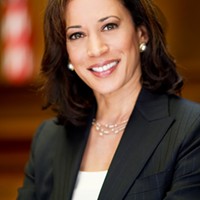News Blog

In its response to the Grand Jury Report, presented at the Aug. 15 Board of Supervisor's meeting, the HCSO said it agreed with the grand jury's findings that some officers "do not file reports on cases they investigated," violate state law by disclosing the identity of mandated reporters and "need more training on how to handle the complicated and serious cases
they are assigned to investigate."
The response, authored by Sheriff William Honsal, says the agency is in the process of implementing the grand jury's recommendation for better training of deputies. The sheriff agreed to "hold accountable" deputies who violated the confidentiality of mandated reporters. More comprehensive reporting and better oversight of existing cases has also been prioritized.
"With assistance and input from the California Attorney General, the Sheriff has been
working with Child Welfare Services (CWS) to upgrade the child abuse cross-reporting
system to make it easier to track prior reports as well as ongoing investigations from
other jurisdictions," the report reads.
The response from DHHS, authored by director Connie Beck, only concedes six of the 11 findings by the grand jury, agreeing that the hiring process for social workers has been "long and cumbersome," that recently hired social workers need better mentoring and that reporting and collaborating with law enforcement is "not always timely."
DHHS either disagreed or partially disagreed on several findings, saying that CWS had changed its response to calls in February of 2017 by having screeners and social workers answer hotline calls, eliminating the previous practice of triaging calls after a non-social worker gathered information.
This change in policy did not go unremarked upon by the grand jury, which said in its initial report that CWS "abruptly made notable changes to their policies and procedures at intake" after twice denying the grand jury access to intake process data. And while moving skilled social workers to the phone lines may have amended the issue with timely responses, it has compounded issues with a dearth of skilled workers physically in the field.
"It is understandable that these issues generated mistrust of DHHS-CWS among some of our system partners and community members," the report says, referring to complaints about response time.
DHHS agreed that there is a problem with training, retaining and recruiting a sufficient amount of staff, blaming in part a lack of qualified applicants. The agency says it will push forward with improving training and that it is strengthening training and improving recruitment methods.
The agency partially disagreed with the finding that there is an "urgent need to improve how it addresses the needs of our American Indian 'at risk' children." Native American children represent approximately 38 percent of those in foster care despite comprising only 7 percent of all children in Humboldt County. The response says that DHHS-CWS, which recently contracted with the National Indian Child Welfare Association, is "in the process of implementing NICWA's recommendations" as well as contracting with tribal service providers for culturally appropriate interventions.
It appears as though an investigation by the California Attorney General has yielded some additional changes, as the DHHS says that rather than working with the University of California Davis to improve services, it has received the A.G.'s approval and oversight to contract with NICWA and the National Council on Crime and Delinquency instead.



Comments